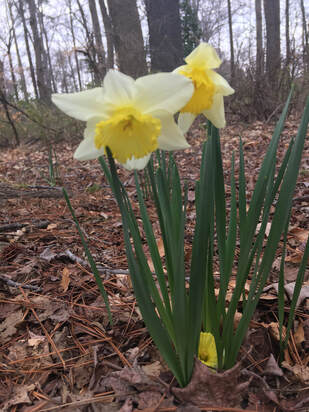|
If you get too anxious about your word count, take a moment to go outside and enjoy the weather. Unless you're in the current heat wave. Photo by Kate Ota 2020 I follow a lot of agents on Twitter and whenever they do an Ask Agent, they usually get a question concerning word count. Often, it’s very specific to what that author is writing and they are worried about over or under writing. “Will it hurt my chances of getting an agent?” they always ask. Sometimes they say “George R.R. Martin got away with it, why can’t I?”
Let’s look at typical word counts, why there are typical word counts, and what an agent will do if you miss the target. What’s The Right Word Count? I took the lowest and highest word counts offered from five different sources to find out the approximate window for the most common genres and age groups. Sources: manuscriptagency.com, litrejections.com, self-publishingschool.com, bookendsliterary.com, writersdigest.com Genre Word Count Window Short Story: 500-8,000 Novella: 10,000-50,000 Adult Commercial/Literary: 60,000-110,000 Adult Science Fiction/Fantasy: 50,000-150,000 Adult Romance: 40,000-100,000 Adult Historical Fiction: 80,000-120,000 Adult Crime/Thriller/Mystery/Horror: 40,000-100,000 Young Adult (all genres): 50,000-100,000 Middle Grade (all genres): 20,000-55,000 Picture Book (all genres): 0-1,000 Some of those windows are very wide because these sources didn’t necessarily all agree about how low or high you can go. Writer’s Digest had the most restrictive guidelines, while the self-publishing school had the broadest. Why Do Word Counts Matter? In this debate, people will always mention the exceptions. Harry Potter, Song of Ice and Fire, Gone With the Wind, and Lord of the Rings consistently went higher than recommended word counts for their genre or age group. You’ll also notice they made a lot of money or were written a long time ago. While you should believe your work can also succeed, you cannot bet on others believing that too before they read it. And getting someone to read a 90,000 word novel is way easier than getting them to read a 300,000 word one. Readers expect certain things from books. They want a happily ever after in a romance, they want magic in fantasy, and so on. The same is true of word count, even if readers can’t name a specific number. They’ll see a book on a shelf or a page count online and make the decision right there. Their negative reactions could range from “That’s too short for how much the book costs” to “That’s so big I’ll never finish it.” You want to hit the sweet spot in between. What Do Agents Do If You Miss the Target? To have the broadest reach with your book, people have to be willing to pick it up—and that starts with agents if you’re going traditional. Agents don’t have an infinite amount of time to read, and the further outside your expected word count, the less likely they’ll read your book. If you are below the expected count, you may be in trouble too. Either way, the agent has to think about how much work your project needs before it can be sent to publishers. All that work is before anyone gets paid, and agents need to eat too. Remember when including your word count in your query that you round to the nearest thousand. Even if that means rounding up and thinking you’ll get in trouble. There’s wiggle room in word counts. If you’re 1,000 words outside the ideal, they’ll probably be okay with that. That many words are easy to add or delete. Once you get beyond 5,000 outside the window, you may be in trickier waters. Agency websites may specify this more, so be sure to peruse the whole website before querying. Right now, my WIP is dancing at the upper edge of the Adult SFF category count, so I’m looking at ways to trim words. I may need to kill a few darlings to feel more confident about my chances of landing an agent. Perhaps next week I’ll go over some word-saving methods. Have you ever written wildly outside of an expected word count? What’s your favorite book that breaks word count expectations? Or maybe, what’s a book that broke word count expectations to the point you refused to read it? Let’s discuss in the comments!
0 Comments
It's officially spring time and that means Futurescapes 2021 is over. At least flowers are blooming! (Photo by Kate Ota) Last week I finished my experience with Futurescapes Writers’ Workshop 2021 and I’ve gone back through my frantically-written notes to find some universal gems to share. I’ve broken it into categories, so if you don’t care about queries, for example, you can skip that section. Most of this information I got from my group leaders and discussions in those groups. Anyone who had other leaders at Futurescapes might have gotten a totally different experience.
I didn't include anything I learned from the classes before Futurescapes. Some are classes offered by those teachers elsewhere, so it felt like proprietary info. I'm not looking to get sued. There’s a huge list of resources at the bottom. I wrote down any craft book, article, or website that was recommended to me. But be warned, I haven’t checked most of them out yet. About writing Don’t hold back with your ideas—editors want what’s fresh and new. There isn’t too far to stretch, just go for it! In your first pages, the most important thing is to not confuse your reader. The second thing is to intrigue them. Do this by grounding the scene in a physical place before going into too much action. First pages should hold enough worldbuilding to show this is a specific world (if this isn’t contemporary) but not so much worldbuilding that you need a world-bible next to you to understand what’s happening. Things should be familiar-yet-different. The phrase “heart pounded” is overused in all of writing. This advice is pretty subjective, but I hadn’t heard this before, so maybe you haven’t either. About Queries and Agents (especially Tricia Skinner) Maintain your author-agent relationship with plenty of communication. Tricia doesn’t require content warnings on queries. However, she’s not a fan of settings including slavery and concentration camps. (Especially for romance! I was shocked she even had to say that, but apparently that’s a thing.) Query must demonstrate character, conflict, and STAKES. So many people forget the stakes. Begin your query with some level of personalization for why you queried this agent. One sentence is fine. A query should be as clear and marketable as possible. In your bio, even if you’re unpublished, include anything that connects you to publishing. Things like attending workshops or writing groups count. At the bottom, below your name, should be your contact info. An author website, even if only a single page, is ideal. Tricia loves enemies in forced proximity as a trope. About synopses A synopsis should either be written in a totally neutral voice or the voice of the novel. (Personally, I think it’s much easier to go neutral.) If writing a multi-POV and struggling to write each character into the synopsis, consider introducing each new POV by mentioning where they are in proximity to the other characters (geography-wise). This cuts down on confusion, especially in a sprawling fantasy where characters may not be on the same continent or a sci-fi with multiple planets. If worldbuilding adds tension, include it. If it doesn’t, and the synopsis makes sense without it, don’t include them there. Emotional arcs should be included, and are probably more meaningful than including every plot event. Resources Bird by Bird by Ann Lamott The Author’s Checklist by Elizabeth Kracht Thrill Me by Benjamin Percy Writing the Breakout Novel by Donald Maas Manuscript Makeover by Elizabeth Lyon Story Genius by Lisa Cron On Writing by Stephen King Wonderbook: The Illustrated Guide to Creating Imaginative Fiction by Jeff VanderMeer Orson Scott Card website article on beginnings Brandon Sanderson website on his writing process How to Write 10k/Day Sooz.com for in depth process and guides Writing the Other website Mapping software websites: Wonderdraft, World Anvil, Inkarnate, Universe Sandbox The Ever Changing Book of Names (random name generator, which gives names sounding like other language origins but are not real.) YouTube channels: Just Write, Razbuten, Hello Future Me, Nerdwriter, In Praise of Shadows (horror), Behind the Curtain, What’s So Great About That?, Storytellers, Abbie Emmons, The Closer Look, Make Stuff, Jenna Moreci Have you tried any of these resources? Did this advice help you? Let's discuss in the comments! The first daffodils of spring. They didn't wonder if they were ready to bloom, they just did it. Photo by Kate Ota 2019. One of the hardest parts of writing with the intention to publish is knowing when your work is ready to be sent out. Whether that’s to agents, publishers, or to readers as a self-published book is up to you. Anyone about to endeavor on that journey, no matter which path, always asks the same question: is this ready? Here are some ways you can determine the answer.
You Read It Through and Only Make Minor Changes Periods, commas, a semi-colon, deleting that semi-colon, minor spelling errors. These tiny changes are a sign you’re done editing. No book is perfect, and if you’re going the traditional publishing route, many more eyes will be on this, so don’t stress that comma. If you’re self-publishing, you can consider hiring a professional copy-editor to catch anything else you don’t in this stage. You’ve Fixed Problems Noted by Your Beta Readers Especially if they only offered minor suggestions, or you decided not to take their ideas of larger changes. Once you know other people have seen it and overall enjoyed it, you can be more confident sending it out. You Can’t Think of Anything Else to Change, but You Don’t Think It’s Good Enough If you and your beta readers don’t have more ideas for how to improve the book, may I suggest it’s because there’s nothing that needs improving? This state of mind is just you not feeling confident enough in your work. Take a deep breath, tell yourself it’s great, and move forward. If traditionally publishing, your future agent or editor may have suggestions you like and incorporate—but maybe they’ll like it just the way it is. You Want to Say it's Ready, but Feel Like You Need to Keep Editing for X Amount of Time or You’re Not a “Real Writer” This is called imposter syndrome. Everyone gets it at some point, and it’s the worst. There is no standard amount of time for you to take on edits as a writer. Yes, there are some general sentiments out there, like it should probably take you more than a few days, and anything over ten years raises questions. But honestly, any timeline is fine. Got a full-time job and only write for thirty minutes at night on a good day? Gonna take you a while. Furloughed from work with no kids but also financial stability and therefore have all the time in the world to write right now? You’ll probably move faster than you expect. Don’t feel like you have to toil and lament in order to be “real.” You wrote words, therefore you’re a real writer. Published or not. Take the time you need to edit, and if you’re done, you’re done. You Secretly Know You’re Done Editing, but You’re Scared of the Next Step There is no pressure to get published. Scared to share your work? Don’t. You don’t need to publish to be happy. If you finish your edits, you can walk away from the project. If you want to be published, you’ll have to swallow your fears and get some emotional-armor ready. Yes, publishing is full of rejections. From agents, from editors, from reviewers, from readers. It’s a lot of work no matter which path you take and thinking you could fail at something you’ve been dreaming of is scary. You’ll automatically fail by never trying. So, don’t sit in the editing stage, claiming to be fiddling with this or that in order to put off the inevitable. Go forward and query. Go forward and submit. Go forward and figure out self-publishing. Whatever it is you’ll do next, go do it. What other ways can you tell you’re ready to move on from the editing stages? Did these help you decide to take the next steps? Let’s discuss in the comments! Anxious about querying/Pitch Wars? Take a deep breath, look at these flowers, and then read my blog post below. Photo by Kate Ota, Stuttgart Germany, 2013. With Pitch Wars just around the corner, Twitter is flooded with people asking for help writing their queries. Queries are a really tough format because they need to be short, include enough information to make sense, be interesting, and have voice. It’s no easy feat, but as someone who has queried two novels in the past and had some success with requests, I can offer basic tips to get you started.
Format and Content If an agent’s website (or for Pitch Wars, a mentor’s website) doesn’t specifically ask for a certain format, the following is what’s generally expected: Dear [Agent, be specific with their name here! For Pitch Wars: Dear Mentors], Plot/character paragraphs (no more than ~3 paragraphs): This must include: Who is the main character? What do they want? What choice must they make/problem must they solve? What are the stakes? Generally, don’t go beyond the 20% mark of the novel in terms of content. Metadata paragraph: [Title] is a [age group] [genre], complete at [word count]. It is [comparison title 1] meets [comparison title 2] and would appeal to fans of [comparison title 3, ideally the most recently published]. Bio paragraph: Tell the agent about yourself. Do you have publication credits, a popular website, a degree in writing or English? What’s your day job? Does the day job relate to the content of the novel? (It doesn’t need to!) Do you spend your free time doing anything else besides writing? Do you have cute pets? Don’t go overboard here, two sentences is enough. If you have a ton of pub credits (like a bunch of short stories in anthologies or magazines) pick three which had the widest audience or were most recent. Thank you for your time and consideration, [Your name] Total length: for Pitch Wars it’s 250 words. For agents in general, don’t go much more than that. 300 would be the max. Some agents like to know why you chose them. This information will not make sense in a Pitch Wars query, since you’re sending to all your mentors at once. However, for an agent, any specifics you want to include should go first, and should be to the point. Don’t say “because your website says you rep my genre.” They know they rep your genre. If you include personalization, make it specific. “You rep my favorite book, X, whose female lead has magic powers like my character, Y.” “You tweeted that you’d love to see more witches, which are abundant in my novel, Z.” Common Query Questions What’s the right word count for my genre? Check out this article from Writer's Digest. Can I see some real examples? Check out Query Shark, the website by agent Janet Reid. Read as many posts as you can! What if my novel has multiple POVs? You can mention it has multiple POVs in the metadata paragraph. You can either introduce some of your POV characters with their own short paragraphs or explain one central plot and character. If there are more than three POVs, focus on one central character because they query will not have enough space for everybody. I don’t have any publication credits, do I say that? You don’t need to. You can either not mention it at all, which the agent (or mentor) will understand means you don’t have any credits or you can phrase it as “this would be my debut novel.” What if I self-published before this? If you self-published the story you’re querying, it doesn’t qualify for Pitch Wars. Many agents also don’t want to work on a previously self-published work. If you are querying a different project from what you previously self-published, that’s fine. Some agents want to know how that self-pub fared; some don’t care. Some will hold bad sales against you. Usually their website offers insight into their self-pub-past preferences. How do I find comparison titles? Comp titles are the hardest part for me. I generally go for content/tone comparisons because those give the most information about what the reader is going to get. You can also have comparisons for style, if you have an unusual format (like verse or complex timelines), or specific elements (it has the world building of X with the quirky humor of Y). Finding specific titles is a matter of searching and reading. In the Before Times, you could ask a bookseller or librarian about new books in your genre with elements you have in common. Nowadays, it’s up to good ol’ Google. Amazon has the most up to date information about best sellers in obscure genres, but don’t compare to mega best sellers. If you say it will appeal to fans of Harry Potter, Twilight, and The Bible, no one will believe you. On the other hand, an obscure comparison will be meaningless. Find a happy medium with comp titles in your age range and genre: It has rich world building like K.A. Doore’s The Perfect Assassin and would be found on the shelf with Rebecca Roanhorse’s Trail of Lightning. Choose titles that have sold reasonably well and came out in the last 2-3 years. You can push that for an older comp if it’s absolutely perfect, but try to keep it to one old comp and the rest are new. What if I use a pen name? If you have a pen name, you can sign your query with that, but an agent will eventually need to know your legal name to sign with you. Make sure the name you sign with matches your email’s name. Can someone else query for me? I suppose they can, but I’ve never read anything from any agent that suggests they like that. Usually, they advise against it. If someone wants money to query for you, run away. Fast. Do I need to hire a professional editor before I query? No. And doubly no for Pitch Wars, editing is the name of the game. However, your manuscript should be as polished and clean as you can make it. I highly recommend joining critique groups to help with this, and beta and authenticity readers are also a huge help. However, paying a professional editor is not necessary. What if my project is the first in a series? This is tricky, you don’t want to gush about how you’ve written all 18 of a series before the first even sold. It scares agents. If it’s the first in a series, you would include in your metadata paragraph that is has series potential. If it is not in a series, the phrase to use is it’s a stand-alone. I have really intense world building, how do I fit that into the query? You can slide in hints of the world building, but you’ll have to save the complexities for the synopsis and the book itself. The query needs more about the main character and the plot than the world building. If the agent (or mentor) reads your query and can’t name the character, their want, their choice, and their stakes, they won’t care about the world building because they won’t know what happens. Do I say how it ends in the query? No. Generally, you only discuss content that’s in the first 20% or so of the novel. Act 1, if you’re into that structure. The stakes mentioned can hint at what would go wrong later, but you shouldn’t tell us if it actually goes that way. You do, however, discuss the ending in the synopsis. Synopses will be a separate post. I'll end by reminding you that no matter what you read, even if you read it here, whatever the agent's website says they want is the correct thing to send them. Follow their rules! They have a reason they want it their way, so just do it! Want help on your specific query? DM me on twitter and I can take a look. Have a question I didn’t cover? Write it in the comments and we’ll discuss! |
Archives
April 2024
Categories
All
|





 RSS Feed
RSS Feed